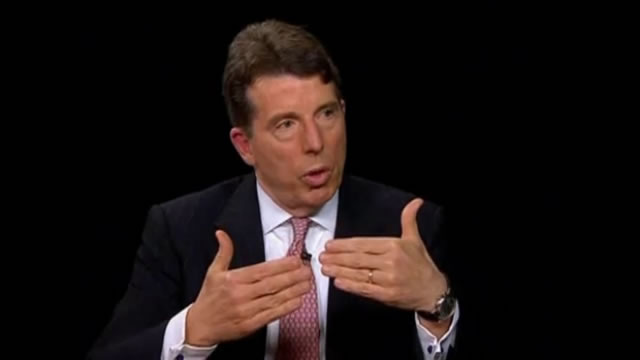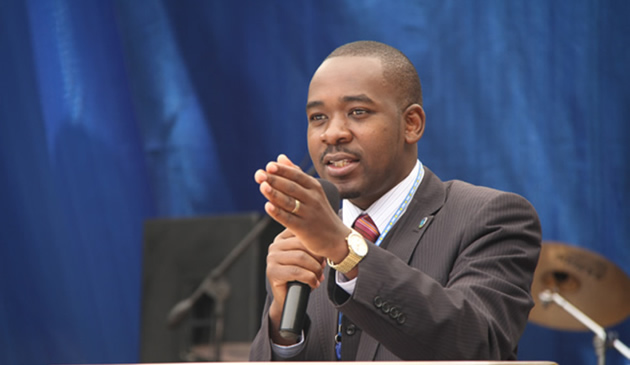What does Bob see in Zim?

 Bob Diamond, a former Barclays Bank Plc chief executive decided to invest in Zimbabwe.
Bob Diamond, a former Barclays Bank Plc chief executive decided to invest in Zimbabwe.
He is a man exposed to global investment opportunities, a man with the whole world to choose from in terms of investment options, but decided to sink in US$100 million into a Zimbabwean bank, and made a commitment to raise at least US$500 million for the country over the next few years.
That sounds great for an economy thirsting for liquidity but the question that beckons is: What did Bob Diamond see in Zimbabwe that persuaded him to invest in this southern African country?
Where he comes from, he is surely bombarded by news every morning, afternoon and evening about how Zimbabwe is the worst place to do business or to even visit for leisure. The media tells him his money will not be safe if taken to Zimbabwe.
Him and his peers have been made to believe that even their dogs and cats are not safe because the economic and political chaos in Zimbabwe will drown them all in no time.
He obviously subscribes to literature from the International Monetary Fund, World Bank and other global economic monitors that tell him Zimbabwe is way down the ladder in most global rankings. It only scores highly when it comes to human rights abuses, poor governance and other such factors the West would want the whole world to believe.
Did he not know that this country is actually under sanctions because the Government and its leadership are a naughty lot bent on making life difficult for everyone, as Britain and its allies would want all and sundry to believe?
But all this would not stop him. The question again is: What did he see or what does he see in this country that has escaped the generality of the international community, particularly the West?
What urged him on to come to this “High risk, low return” country in the eyes of most of his peers? Did the misconceptions on indigenisation not scare him? To think that he actually came ready with a laid down indigenisation compliance plan! What cheek!
What gives him the confidence that his investments will be safe, and more importantly that he will get a good return on investment?
The answer is seemingly complex and yet easy to decipher. Zimbabwe is a country richly endowed such that any attempts to dissuade investors is easily subdued when dealing with the serious type that can distinguish between cheap politicking and the real thing that Zimbabwe is. Even local investors need a lot of convincing that this economy has a future. Even in its current state, it can still pull a lot of surprises that will see investors smiling all the way to the bank literally.
Does that mean all the challenges are made up? Not at all. They are as real as they come but they should not be allowed to diminish the positives and the potential this country possesses.
I wouldn’t mind a cup of green tea with Mr Diamond one of these fine days to hear from him what it is that massages his confidence about this country. Other investors too have waded past perceived stumbling blocks to establish themselves in this market.
At a time the world has been told that the best business to do in Zimbabwe presently is the manufacture of riot gear to deal with the chaos on the streets, in companies and households, you still get decent investors like Mr Diamond catching a flight to Zimbabwe to sign serious deals.
The absence of an Air Zimbabwe flight from the UK to Zimbabwe does not help matters but Mr Diamond would not be stopped, he found other means. Whether the trip would take him via Johannesburg, Nairobi, Addis Ababa or Cairo, he would not be deterred. There certainly must be something right about this country.
Given such a scenario, would it not be advisable for stakeholders to expend their energy more on highlighting these positives and formulating strategies to buttress them?
Is this not a lesson for us as Zimbabweans to look for opportunity instead of allowing challenges to blur our vision? Couldn’t we be losing millions and millions of dollars by choosing to focus on what is not rather than what is, as a strategy to bring impetus to this economy?
There are resources around us and within us that could be turned into the cash we so desire once we put our mind to it. If we agree that foreign direct investment will inject the much-needed capital, how best can we ensure we get it fast so we can have more money in the system and better technologies to give our products a competitive edge in the marketplace?
President Mugabe last week stressed again what he said before that Zimbabwe is ready for investors and is keen to engage the international community, emphasising that the country would do all it could to realign its policies as it seeks to create a conducive environment for FDI.
He stressed that nothing was cast in stone, in apparent reference to some provisions of the Indigenisation Act that investors may not be comfortable with, in particular the 51-49 shareholding requirement, which he said would be waived if need be.
Given such commitment from the top, the onus is on the rest of the machinery, be it Government ministries, departments and the Zimbabwe Investment Authority to engage into the right gear. There is a definite need for follow-ups and follow through in terms of policy and action.
If we say we need investment then let everyone act like we need it.
For instance, a recent World Bank report stressed that the mining sector alone has potential to attract $12 billion worth of investment in existing operations alone over the next five years. How much more can be directed into new projects?
How much more can be attracted into the rest of the economy? This country is sitting on huge resources that could transform the economy even at supersonic speed if we earnestly apply our minds to it.
FDI not only brings capital to an economy, but it can integrate the country into global value chains and accelerate export growth.
It can help oil the Zim-Asset economic strategy set to transform the economy over the next five years.
Every facet of this economy needs to engage into the FDI mode.
In January, the Indian ambassador to Zimbabwe Mr Jeitendra Triparti said his country was ready to bring in $10 billion worth of investments. In March, a top German-American billionaire fund manager said huge investments were coming Zimbabwe’s way.
In the same month, Turkish investors said they were planning to bring investment worth millions of dollars into agriculture and other sectors of the economy. Furthermore, this country continues to host trade and investment delegations keen to do business here.
Given all this the questions that follow are:
What is Zimbabwe doing to ensure these pledges become reality?
Has there been any follow-ups on these specific interests shown? What concerns if any raised by investors and have they been addressed?
FDI contribution to GDP has dropped over the past decade to 1,1 percent from 19 percent. But the situation is redeemable.
In God I trust!
Feedback. [email protected]







Comments